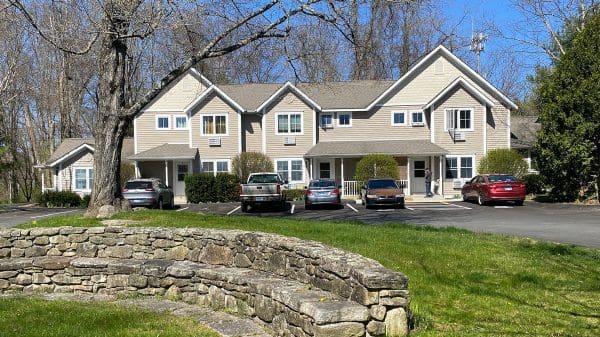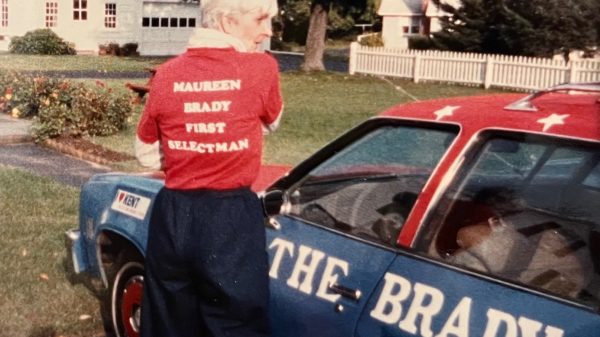KENT—The Board of Selectmen last week voted to request a 30-day extension of its Food Scraps Pilot Program at the transfer station to allow it to complete its report for DEEP and to consider how the plan will be administered in the future.
Jennifer Heaton-Jones, executive director of the 14-town Housatonic Resources Recovery Authority (HRRA), gave the selectmen an update on how the pilot program has fared during its first eight months of operation and outlined three models for future recycling developed by the Department of Energy and Environmental Protection (DEEP).
Under the pilot program, the town last year reduced its annual transfer station permit fees to $125 for those volunteering to participate in the food scraps program, which calls for residents to separate organic materials from solid waste and to process it in orange bags. Seniors participating in the program, who are presumed to produce less municipal solid waste, paid $115 for their permits, and those taking out only food scrap recycling permits paid $20.
During the first eight months, Kent residents separated out about two tons of organic waste each month. Because organic materials weigh more than other solid wastes, separating them out to be composted results in a savings for towns, which pay for disposal of municipal solid waste (msw) by the ton.
Heaton-Jones said the voluntary pilot program was not quite as successful in its first months as had been hoped and suggested that making it mandatory and going to unit-based fees, where residents pay for each bag of garbage they generate, might be fairer. “You wouldn’t want to pay for someone else’s electricity,” she said. “Why would people want to pay to dispose of someone’s else’s garbage?”
She outlined three models for the coming fiscal year and said the selectmen had a deadline of April 15 to tell the state which one most closely fits the town’s profile. The first two options entailed different permit fees, bag distribution methods and methods of charging for disposal. The last model would not use special bags but would require a transfer station “punch card” and payment by the bag.
The selectmen learned that, while Kent did not achieve as much recycling as had been hoped, it ranked third in the 15 pilot owns. “There is a lot to be happy about,” said Heaton-Jones.
The selectmen asked about other towns and what systems they were using. Heaton-Jones said they vary with the demographics of the communities, the manpower at their transfer stations and the hours they are open. Most towns have a “pay-as-you-throw” system, she said.
“You have to consider that the transfer station is a service to town. Every resident produces trash, whether they use a curbside service or not, and the transfer stations needs to cover its cost. Right now, the town is subsidizing it, when it should be the responsibility of the individual,” she said.
First Selectman Marty Lindenmayer said he had concerns about the punch card system because people would tend to forget to bring them. “It hits people quicker when they pay per bag rather than one fee at the beginning of the year,” he said, adding that more discussion is needed to “figure out the details.”
Selectman Glenn Sanchez asked what Heaton-Jones would recommend for Kent. Although the communities that are most successful financially weigh each bag, she said she would not recommend that for Kent because of staffing issues and the need for a scale.
She stressed the need for Connecticut as a whole to find a solution for waste disposal. Connecticut produces 3.5 million tons of waste annually, 800,000 tons more than it can process within it borders. The rest is shipped to mid-Western states for disposal at considerable cost.
“Thirty-two percent of the waste is organic,” she said. “That is low-hanging fruit. There is no reason why it can’t be separated from the waste stream.”
There is yet another benefit to separating municipal waste. In late April, the town crew will collect mulch from the composted refuse and bring it back to Kent to be distributed to residents. “There’s a return on your investment that can go right in your garden,” observed Lindenmayer.
In other business, the selectmen appointed Brent Kallstrom as sexton for the town’s cemeteries at an annual salary of $28,000.
Selectmen Lynn Mellis Worthington, who chairs the Broadband Committee, asked that alternates be appointed to it, and said it would be good to have an update on activity in building official department as well as an accounting of how much ARPA funding has been distributed.




























